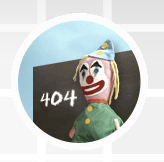Learning with Auntie
This week the BBC launched its new strategy for learning.
Despite the unalloyed successes of the revision service Bitesize, the foolishly shelved creative offering for teenagers Blast and the sterling work of Adult Learning, the BBC has been frustratingly timid about its Charter-proclaimed educational remit for the last few years. The reason for the half-heartedness was, no doubt, the consequence of the murderous pursuit of BBC jam by the UK’s educational publishers and their trojan horse, Besa. Their wholly specious and evidence-less campaign did a massive disservice to the nation by causing the project to be abandoned; it prevented our children from benefiting from the £150m of ground-breaking online educational content and destroyed the UK’s once in a lifetime chance to establish a world-leading online school age education service. [Apologies, rant over]
Still, after various false dawns and despite the continual hounding by the publishers, the BBC has unveiled it’s new plan: to link learning to the Corporation’s brands such as Eastenders and original broadcast output. It’s a good, if obvious and safe, idea. And a variation on Auntie’s thinking during the early years of the millenium when Learning Execs were embedded in general programme-making units.
I hope the plan offers the Corporation some protection and opportunity to deliver one of it’s prime public purposes of “promoting education and learning.”
One of the challenges the BBC will face when embedding learning into brands is differentiating the motivations of its audiences.
Those who explicitly want to learn will come looking for it – they’ll expect to be able to identify specific subjects, learning outcomes, related content, even curriculum links. For them only hard educational evidence will do. And like schoolchildren unconvinced by contrived ‘real world’ examples of curriculum subjects in class, education seekers will want authenticity – they won’t appreciate suggestions that Top Gear alone will help them understand friction (although Clarkeson et al could provide a wonderful catalyst).
On the other hand, many of us can be tickled, intrigued and captivated by serendipitous learning – when general entertainment sparks more studious interest: where watching a harrowing dramatisation of people trafficing can inspire us to investigate the origins of slavery, for example.
But they are two different audiences. I look forward to seeing how the Beeb addresses them.


Trackbacks/Pingbacks
[…] This post was mentioned on Twitter by Carlton Reeve and Oonagh Jaquest, Myles Runham. Myles Runham said: "the murderous pursuit of BBC jam by the UK’s educational publishers and their trojan horse, Besa" http://bit.ly/bVVw5F nice one @carlton […]